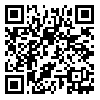Sat, Jan 31, 2026
| فارسی
Volume 25 - Special Issue
Advances in Cognitive Sciences 2023, 25 - Special Issue: 6-0 |
Back to browse issues page
Download citation:
BibTeX | RIS | EndNote | Medlars | ProCite | Reference Manager | RefWorks
Send citation to:



BibTeX | RIS | EndNote | Medlars | ProCite | Reference Manager | RefWorks
Send citation to:
Meshkinfam M, Naghzguy-Kohan M. Hopelessness and hopefulness rate in Iranian society over the last fifty years: A cognitive view. Advances in Cognitive Sciences 2023; 25 :6-0
URL: http://icssjournal.ir/article-1-1562-en.html
URL: http://icssjournal.ir/article-1-1562-en.html
1- Department of Linguistics at Bu-Ali Sina University, Hamedan, Iran
Abstract: (1266 Views)
This research aims to illustrate the rate of hopelessness and hopefulness over the past five decades (the 1970s up until the 2010s) in Iranian society since it is widely believed that Iranians have become much more hopeless nowadays compared to the past. Therefore, the question “Has Iranian society become more hopeless through time from a scientific point of view?” is imprinted in the minds of Iranians and researchers. In a sense, language reflects the human mind and society; consequently, the reflection of one’s emotions, such as hope in language, is conspicuous. As emotions are often abstract concepts, a language mostly uses conceptual metaphors to make them more tangible for man. A set of correspondences exist between a more physical source and an abstract domain. In this study, the rate of conceptual metaphors referring to hopelessness and hopefulness and the cognitive pattern regarding hope in Iranian society is investigated in the selected corpus of best-selling movies from each decade, in which six movies and a total of thirty. The findings illustrate that hopefulness is observable to a small extent in society only in the 70s and 90s. However, the greatest hopelessness in Iranian society was experienced in the 2000s and 2010s. Furthermore, the most frequent source domain of hopelessness conceptualization is “inability”; for hopefulness, it is “dynamism.” This study concluded that Iranians are increasingly more hopeless over time, particularly in the last two decades, from a cognitive point of view.
Type of Study: Research |
Received: 2023/06/20 | Accepted: 2023/06/20 | Published: 2023/06/20
Received: 2023/06/20 | Accepted: 2023/06/20 | Published: 2023/06/20
Send email to the article author
| Rights and permissions | |
 |
This work is licensed under a Creative Commons Attribution-NonCommercial 4.0 International License. |





